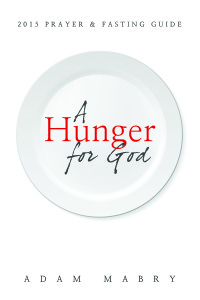This post also appears at NewChurches.com As the entrepreneurs of the church world, we church-planters tend to have strong opinions on the kind of church we want. So once we get the idea of the future church in our heads, we go after it. We raise money, find the venues, and organize the team to get to the goal that (we hope) was given to us by God.
While this goal-oriented nature can be a huge blessing in the life of the planter, it can also be his demise if his goals aren’t good. I’ve had the privilege to train, equip, and coach a lot of godly planters with godly goals. I’ve also seen a few whose goals were suspect. So how do you know if your goals are godly? Try answering these four questions:
1. Why are You Planting this Church?
If I had a dollar for every guy I’ve met who had a bad answer for this question, I’d be able to buy myself at least two Ed Stetzer books. “There’s nothing like this church in my town,” or, “There’s no Reformed (or charismatic, or missional, or whatever your thing is) church around here,” are bad answers. Also unacceptable are, “I’m ready to be the boss,” “I’ve got a great vision for how church could be done better,” or my personal favorite, “I’m not really sure what else to do.”
The only correct answer to this question sounds something like, “Jesus has commanded me to go make disciples. Planting a church seems like the way God wants me to do that.” If you’re not doing this to form and fashion followers of Christ, you’re not doing it for a good reason.
2. What are You Reacting Against?
Many a church planter has a bad PH balance in his soul. You’ve probably met them — guys in their 20’s and 30’s who are reacting against their mega-church leading, boomer Pastor dads. Such reactivity makes their work acidic, dripping with the “I’ll show so-and-so,” attitude that may doom their work. Have you ever stopped to ask yourself what you’re reacting against? What way of doing church, or denomination, or leadership style, or theology are you determined to avoid? Do you want to lead a house church on its merits, or because you just hate how “corporate” church has become? Is ancient/future worship your preference because you’re listening to the leading of the Spirit or because you heard about it through a podcast?
Church planter, don’t be reactive. All things are yours in Christ (1 Corinthians 3:21). Take the best, leave the rest, and don’t succumb to the pressure to form opinions on other church’s methods or leaders.
3. How Will You Make Disciples?
Do you realize its entirely possible to gather a mass of people without ever actually making a disciple? That’s the scary thing about church growth techniques — most of them work really well. When I’m coaching planters I always want to know how their why (Question 1 above) connects to their how (How they make disciples). Now I’m no anti-church-growth guy. Who doesn’t want the church to grow!? I simply mean that attendance and decisions are not the metrics Jesus asked us to track. He told us to make disciples. If you can’t figure out how to do that, you’re probably in the wrong business.
4. Who is Pastoring You?
Church planting is difficult, soul-draining, devil-fighting, marriage-stressing, and financially-challenging work. You need a pastor. Scratch that, you need pastors — individuals committed to telling you the truth, asking you about your marriage and kids, and keeping your soul healthy. Ideally they will be older and wiser than you — people to whom you’ve given permission to speak into the deep, dark recesses of your soul. Our church is doing really well right now, but I’m convinced I’d have wrecked it at least three times without the men who pastor me. Church planter, who is pastoring you?
Answer these questions, planter. The future of your work — and probably your soul — depend on it.




